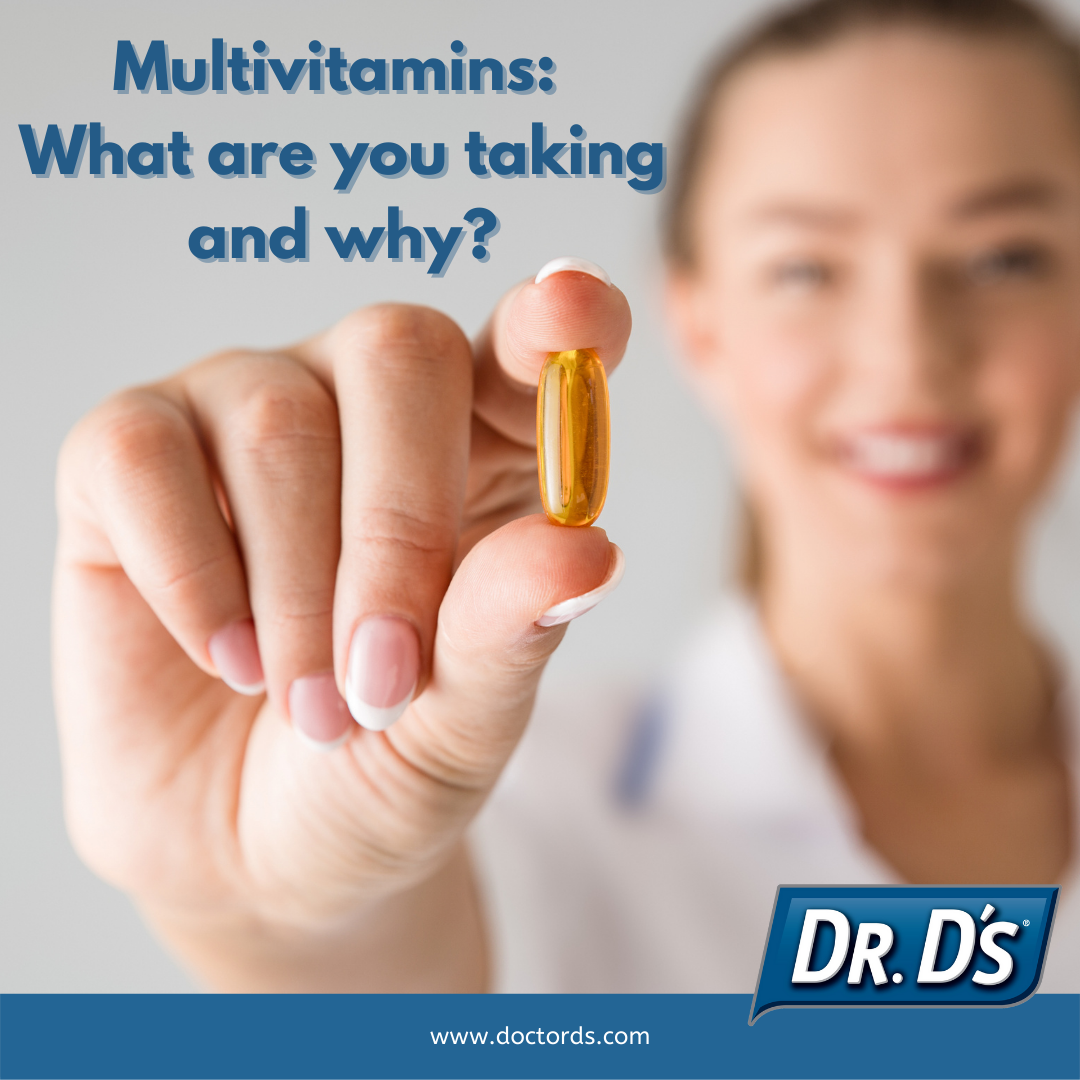
Multivitamins: What are you taking and why?
Share
Multivitamins: What are you taking and why?
An excerpt from Dr. D’s book, The Power of Turmeric, Less is More chapter.
You may have heard from your doctor or healthcare practitioner, or from friends or family, that taking supplements is a good idea in order to supplement your nutrition and make sure you’re not missing anything in your daily intake of minerals and vitamins…and that proper nutrition is a good part of any treatment plan.
While all of these things are true, do you know that the vitamins and supplements you’re taking every day are helping to improve your health and protect you from inflammation and disease? Vitamin and mineral supplements are extremely important and helpful ways to get proper nutrition if you are deficient in them. It is truly wonderful that we have the ability to supplement our diets with the vitamins, minerals and nutrients our bodies aren’t getting enough of otherwise. I am in complete support of taking vitamins and minerals if they are truly something your body needs.
However, most people do not know whether or not they are deficient in vitamins or minerals, and they are taking them anyway. Do you know why you’re taking what you’re taking, and what it is doing in your body? Are you taking a ton of supplements every day, because you’ve heard that it is a good idea to take them? In addition, if your children are taking supplements, do you know what they’re taking and how they might be impacting their bodies?
Patients usually tell me they take some supplements sometimes, and others at other times…and that they often forget to take them. They’re not even taking the vitamins on a consistent basis, and they have no idea what they’re taking and why.
These blogs are about education. I want to help you discern which supplements will indeed help your body, improve your health, and protect you from chronic inflammation that leads to disease.
Here are the three reasons you should be taking vitamins or other dietary supplements:
1) To supplement deficiency
2) To reduce or prevent inflammation
3) To build up your body’s supply of antioxidants
If you are deficient in a vitamin or mineral, and you aren’t getting enough of that micronutrient from your food intake, it is important that you take it in supplement form.
The second and third reasons for taking supplements are also very important: inflammation leads to disease through the oxidation of healthy cells and the production of free radicals (see blog: All About Chronic Inflammation – Dr. D's (doctords.com) for more information on this topic specifically). An important take way is: if a supplement is giving you defenses against inflammation or free radicals, it is worth taking. If, however, what you are taking is not doing either one of those two things, and you are not deficient in that vitamin or mineral, it might be doing your body more harm than good.
I’ve heard many people say, “I take a multivitamin once a day to make sure I’m filling in any gaps in my nutritional intake”. Although this seems like a logical strategy, the reality is, multivitamins do very little to support your overall health and they can do more harm than good. There is very little (I haven’t seen any myself) research to support multivitamins, while there is quite a bit of research that has shown them to be either ineffective or harmful. For instance, in a systematic review on the benefits and risks of mineral and vitamin supplementation for the prevention of cardiovascular disease and cancers, “limited evidence [was found that] supports any benefit from vitamin and mineral supplementation…two trials found a small, borderline significant benefit from multivitamin supplements on cancer in men only and no effect on cardiovascular disease.” 1 In addition, the U.S Preventative Services Task Force indicates that “evidence is insufficient to recommend for or against the use of supplements of vitamins A, C or E; multivitamins with folic acid; or antioxidant combinations for the prevention of cancer or cardiovascular disease.”2
A series of clinical trials and observational studies done to assess the risks and benefits of multivitamins concludes that, “results to date are not compelling concerning a role for multivitamins in preventing morbidity or mortality from cancer or cardiovascular disease” 3. Additionally, in a randomized, controlled trial on multivitamin supplementation and cognitive function among men over 65 years old, long-term daily multivitamin use did not provide benefits to cognitive function.4 In another trial investigating vitamins C and E in the prevention of prostate cancer among men aged 50 +, “neither vitamin E or C supplementation reduced the risk of prostate cancer or total cancer.”5
In clinical trials investigating the efficacy of multivitamins and the risk of cancer and cardiovascular disease in postmenopausal women, a “Women’s Health Initiative study provided convincing evidence that multivitamin use has little or no influence on the risk of common cancers, cardiovascular disease or total mortality in post-menopausal women.”6
David Bender, senior lecturer in biochemistry, perhaps sums up the research best: “the answer to the question of whether we should take a multivitamin tablet everyday must be that unless our intake is inadequate as a result of a poor diet then supplements will probably do us no good.”7
In conclusion: If you are not deficient and follow a relatively good diet, you probably don’t need to be taking a plethora of supplements. Find out from your healthcare practitioner if you are indeed deficient, first.
Get the full story! Grab your copy of Dr. Di Stefano’s book, The Power of Turmeric, here.